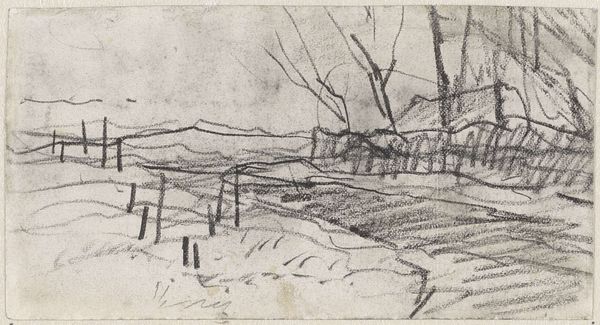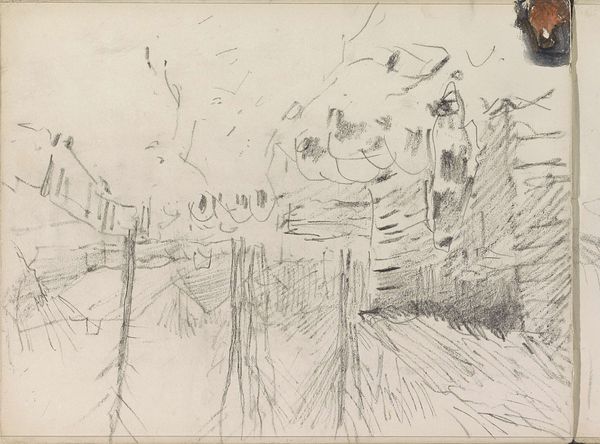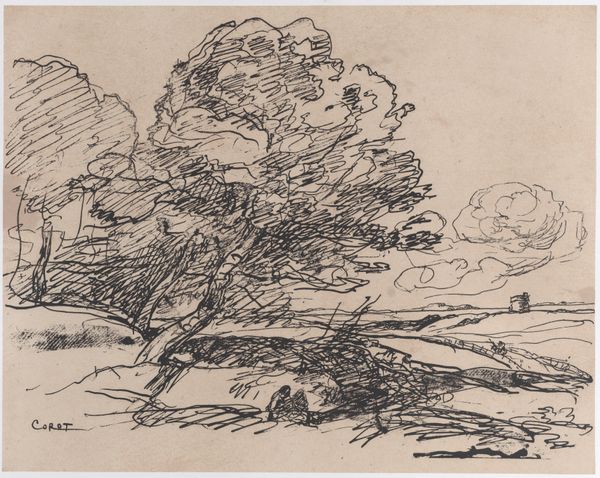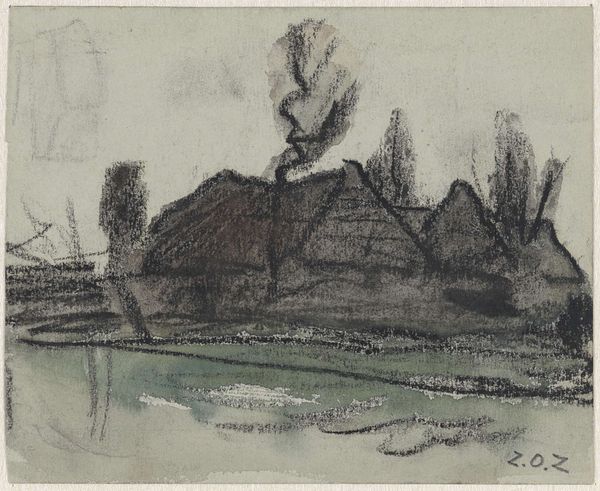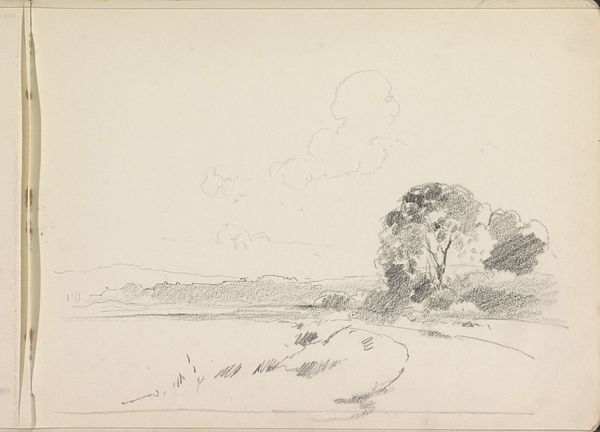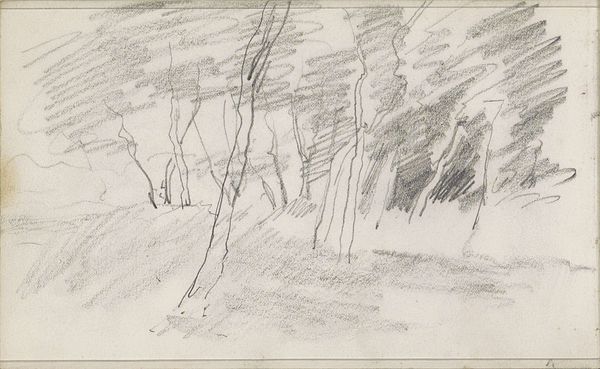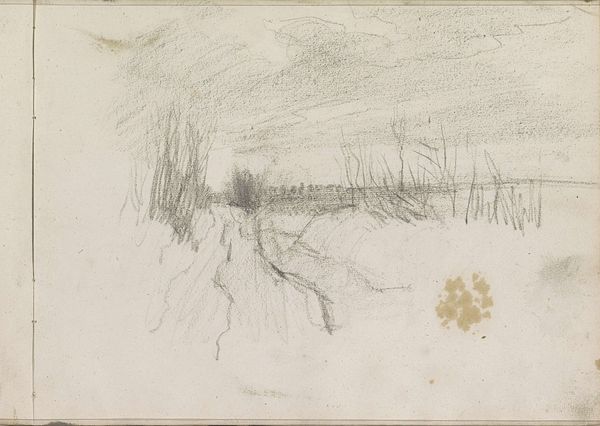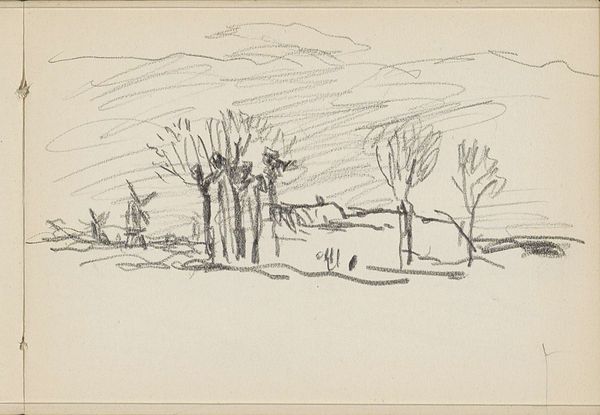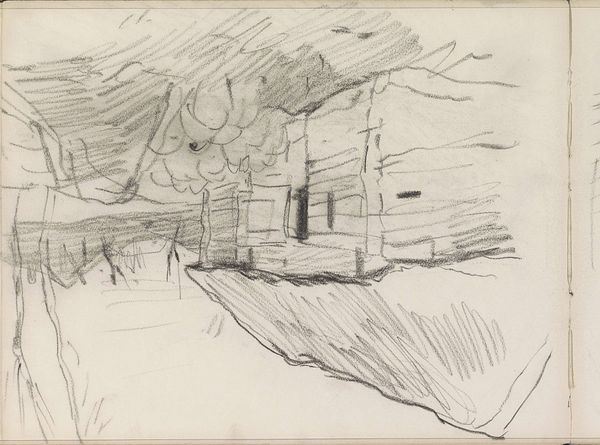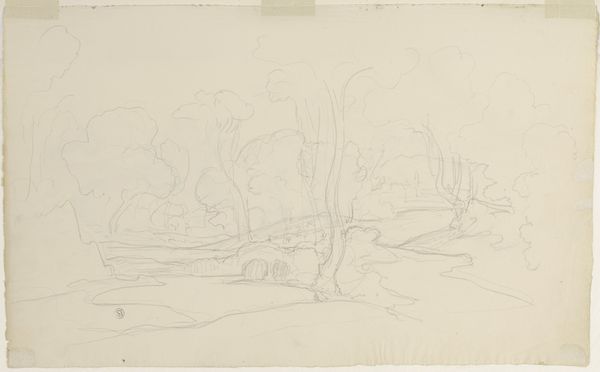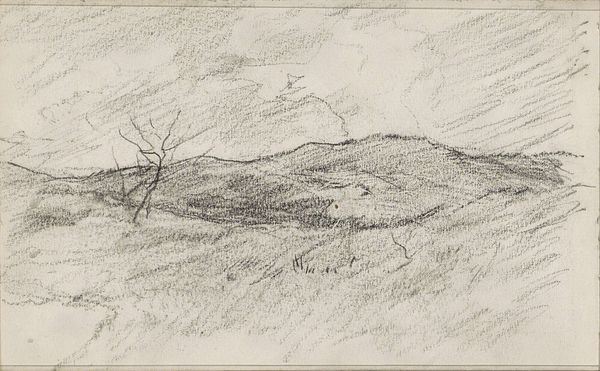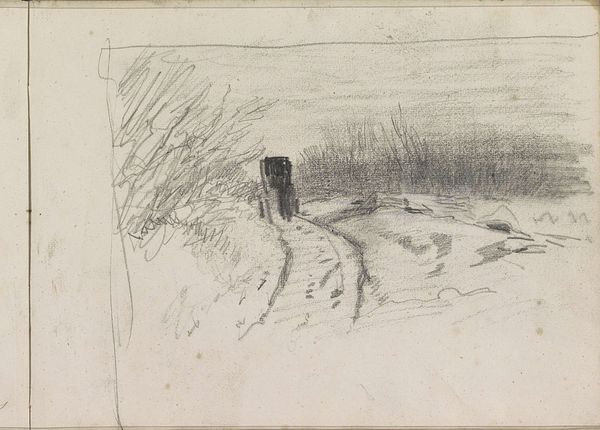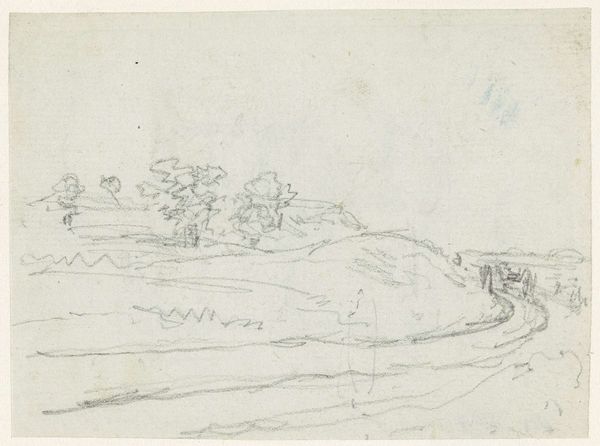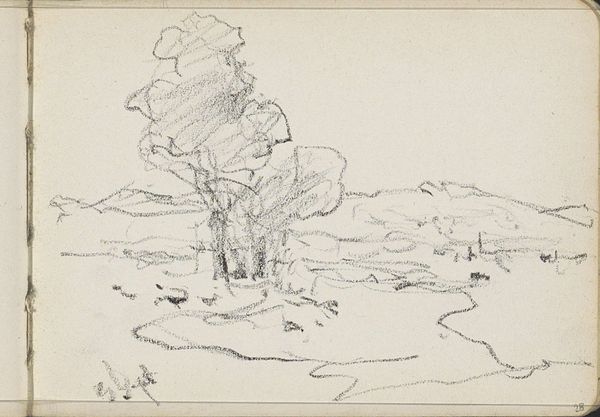
drawing, pencil
#
drawing
#
pen sketch
#
pencil sketch
#
landscape
#
figuration
#
pencil
#
realism
Dimensions: height 163 mm, width 228 mm
Copyright: Rijks Museum: Open Domain
Editor: This is Adolf le Comte’s "Landschap bij Leerdam," dating sometime between 1860 and 1921. It's a drawing, mostly in pencil. It feels very…fleeting. Almost like a memory fading. What do you see in this piece? Curator: I see a landscape rendered not just as a place, but as a space of labour and a potential site of resistance. The muted tones and sketch-like quality, to me, evoke the often-unacknowledged toil embedded within rural life. The solitary figure feels poignant, almost a challenge, given how industrialization constantly marginalizes certain labor demographics. Editor: I see what you mean about labor and marginalization. The lone figure fishing, it definitely feels separate from…everything. Is it the realism style that makes it so direct? Curator: Perhaps partly the style, yes, but it is how this seemingly peaceful scene actually unveils a commentary on the individual's relationship with their environment. Think about it: during that period, land ownership and access to resources were fraught with social and economic inequalities. Who is entitled to this land? And how is that determined? Editor: That's something I hadn't considered. It almost transforms the landscape genre from passive to active! Curator: Exactly! And perhaps questions who or what this landscape serves. What unspoken agreements are reflected here. Editor: I definitely appreciate seeing it that way, as less of an objective reality and more of a statement of that period’s unspoken cultural complexities. Thank you! Curator: And thank you for prompting that exploration. I appreciate you bringing new ideas into play here.
Comments
No comments
Be the first to comment and join the conversation on the ultimate creative platform.
